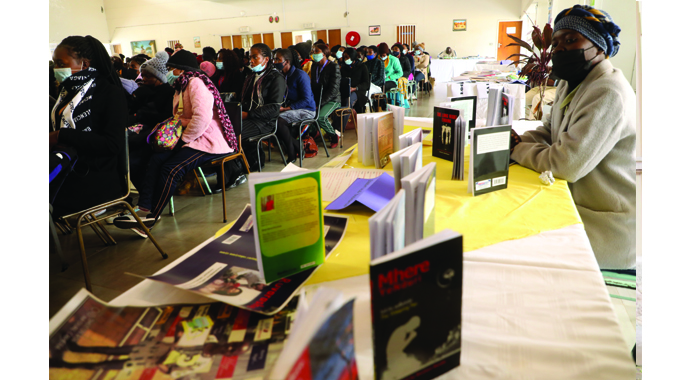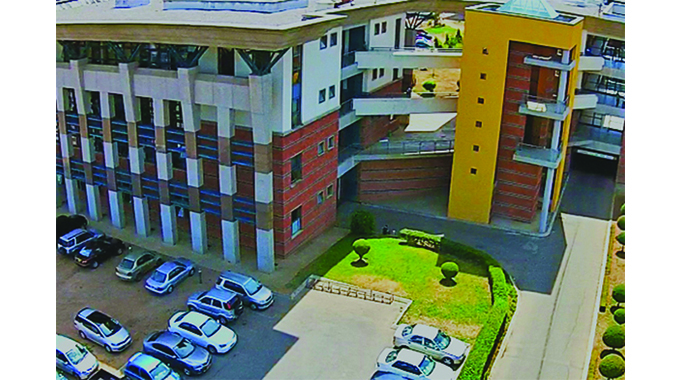Writers eager to contribute to country’s knowledge pool

Bongani Ndlovu, Chronicle Reporter
RESEARCH is the cornerstone of innovation and it is important as Zimbabwe continues to embrace the Education 5.0 policy that will help the country attain Vision 2030 of an upper middle-income economy.
This was said by the National University of Science and Technology chairperson in the Department of Publishing Studies, Mrs Effort Chiware, who was the guest of honour during a Mini Book Fair at the United College of Education (UCE), Bulawayo.
The theme of the event was Innovation Through Research — Embracing Education 5.0. It was attended by hundreds of students and lecturers from different tertiary institutions around the city.

National University of Science and Technology (Nust)
There were about 10 exhibitors that had a variety of books including science, agriculture and commercials.
Under Education 5.0, Zimbabwe’s state universities must launch into outcomes-focussed national development activities towards a competitive, modern and industrialised Zimbabwe. It is now all about problem-solving for value-creation.
A budding writer who is also a lecturer, Mrs Martha Ndiweni who wrote Excel Advanced Level Crop Science said she was motivated by her colleagues who had written books.
She said she wanted to contribute to the country’s knowledge pool and the book fits in with the new curriculum that embraces agriculture as one of the subjects.
Mrs Ndiweni who said she is also a farmer at the outskirts of Bulawayo added that she started writing the book in 2020 during the pandemic.
“I was afraid that I wouldn’t be able to meet the demands of the curriculum and wondered if the book was going to be relevant to the students doing Zimsec or anyone who wants information. I faced a lot of challenges, balancing between being a mother, lecturer, farmer and wife. However, during the Covid-19-induced lockdown, I got time to write this book,” said Mrs Ndiweni.
A UCE student, Miss Spiwe Chihwanda, who is in her first year studying Early Child Development (ECD) said they learn a lot rubbing shoulders with authors and other fundis.
“Through this book fair, students will have the opportunity to learn from the authors how book clubs are formed because it is through book clubs that students cultivate a reading culture. Through book clubs, students learnt to read and comprehend the book so that as they interact with their book members, they can share what they would have read and whether or not it applies to certain scenarios,” said Miss Chihwanda.

United College of Education (UCE)
Mrs Chiware said tertiary institutions have a huge role to play in enabling innovation through research to achieve Education 5.0 goals.
“Innovation is the past, present and the future hence it is about sustainable development, growth and continuity research becomes the cornerstone of innovation. It is the starting point of innovation as it clarifies the problem and how it can be solved. Innovation then entails the action,” said Mrs Chiware.
“Higher Education Institutions (HEIs) are the innovation hubs, where research should be enabled to create environments conducive to the production of new ideas, improvement of centres and problem-solving hubs.”
Mrs Chiware said research and innovation hold the key to solving tomorrow’s challenges.
“The research culture should be encouraged, cultivated, developed and implemented in all HEIs. Let everyone play their part in these institutions to raise the bar higher in research and innovation. The answers to the many problems bedevilling our society lie in these HEIs. The key to those answers is through research and innovation,” said Mrs Chiware.










Comments